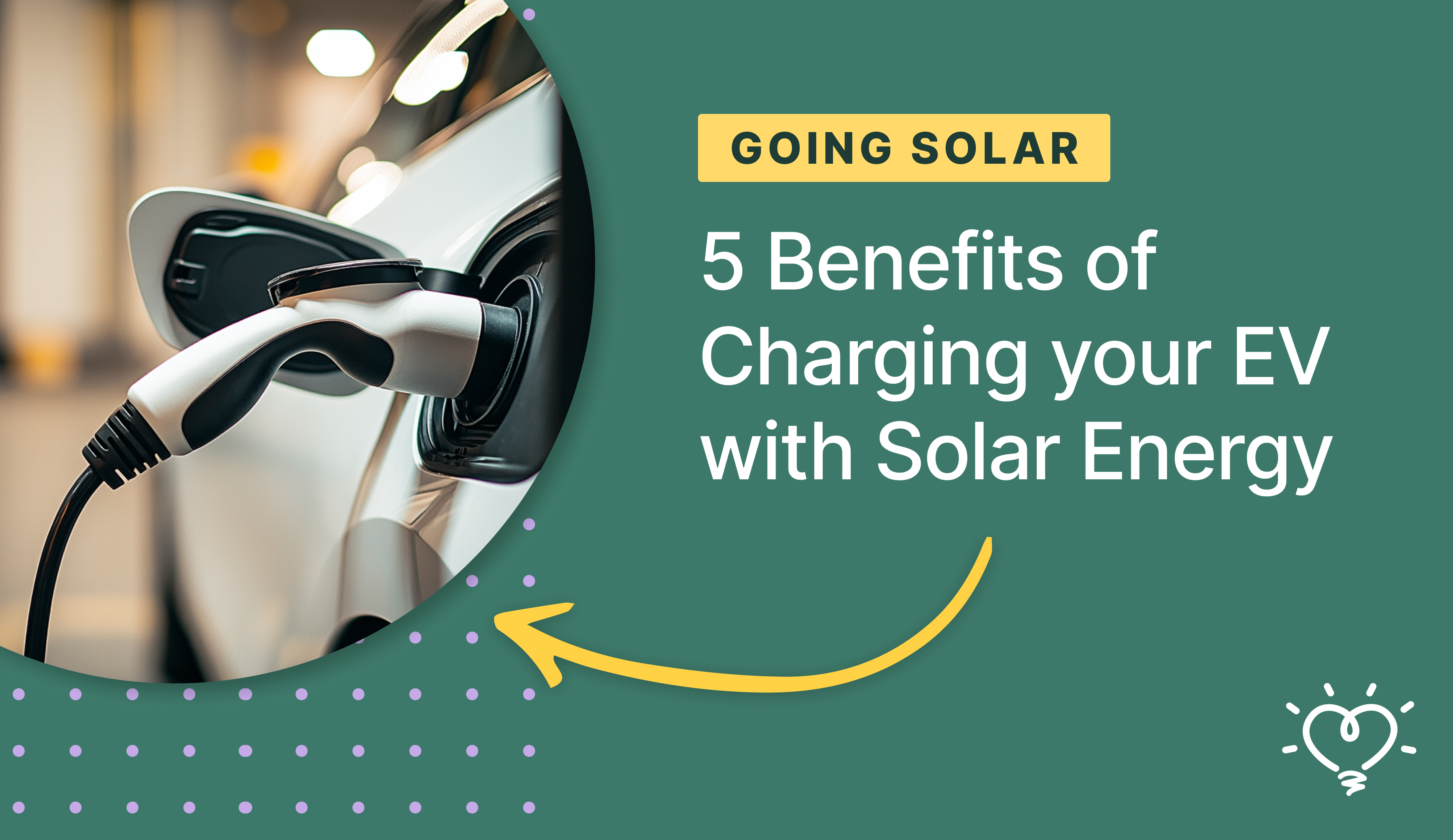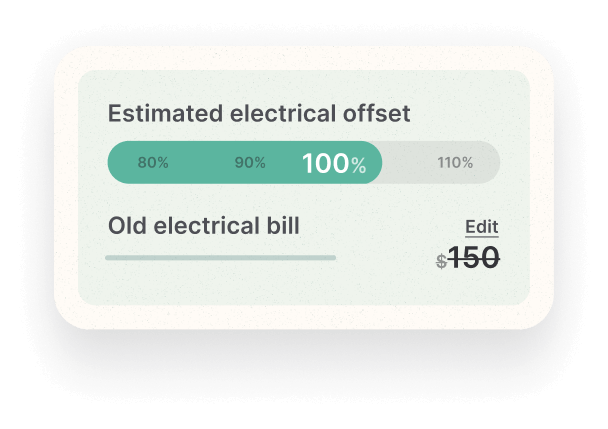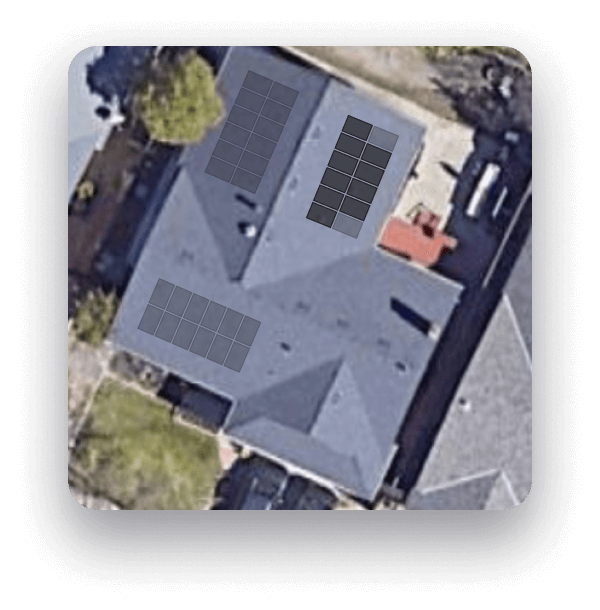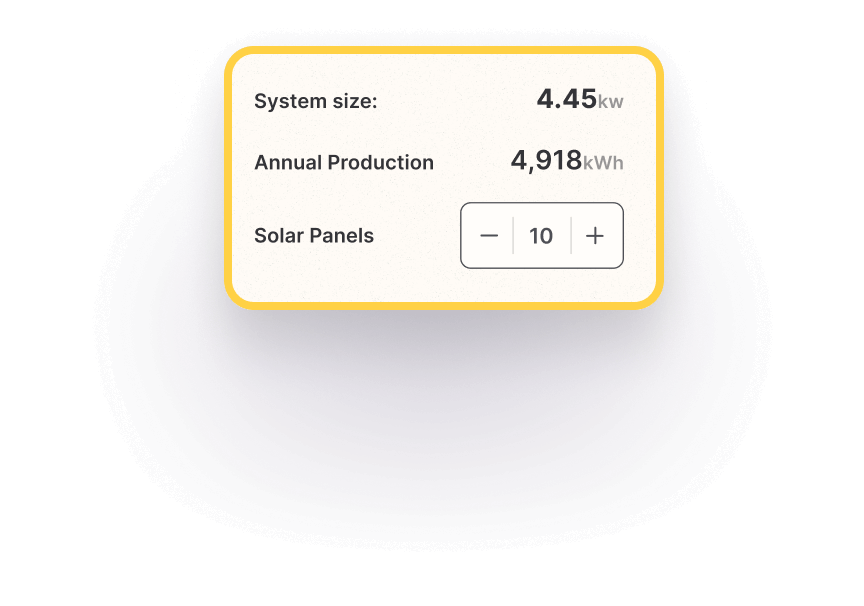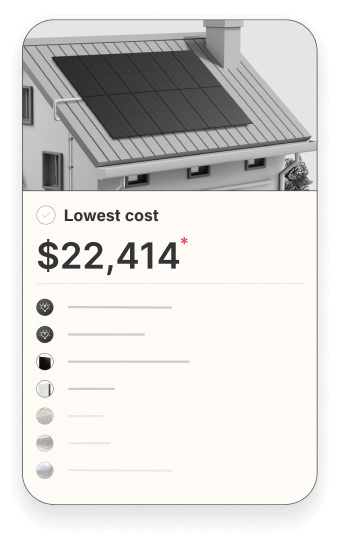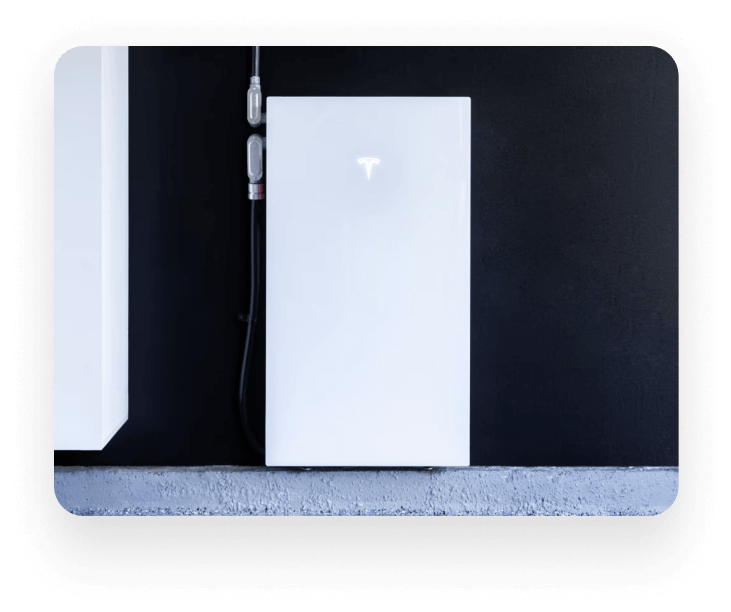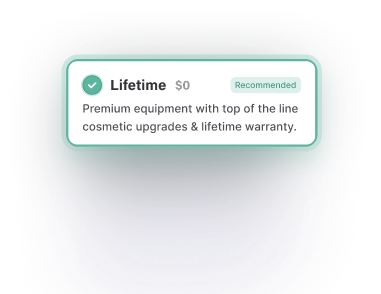Electric vehicles are cleaner, quieter, and require less maintenance than gasoline cars.
One of the biggest benefits of switching to solar energy for your home is being able to save hundreds of dollars a month on your electric bill, all while helping the planet. After all, solar energy is derived from the sun’s radiation, which means it is a renewable and virtually inexhaustible resource.
The environmental impacts of solar energy are considerably lower than those of fossil fuels, making it a more sustainable option. Switching to solar energy contributes to a reduction in air pollution and greenhouse gas emissions.
For many homeowners, installing solar panels on their roof is just the beginning of their journey towards increased energy independence and sustainability. We’ve found that many homeowners go on to invest in one or more electric vehicles. While EVs do come with a higher price tag, they are well-worth the investment.
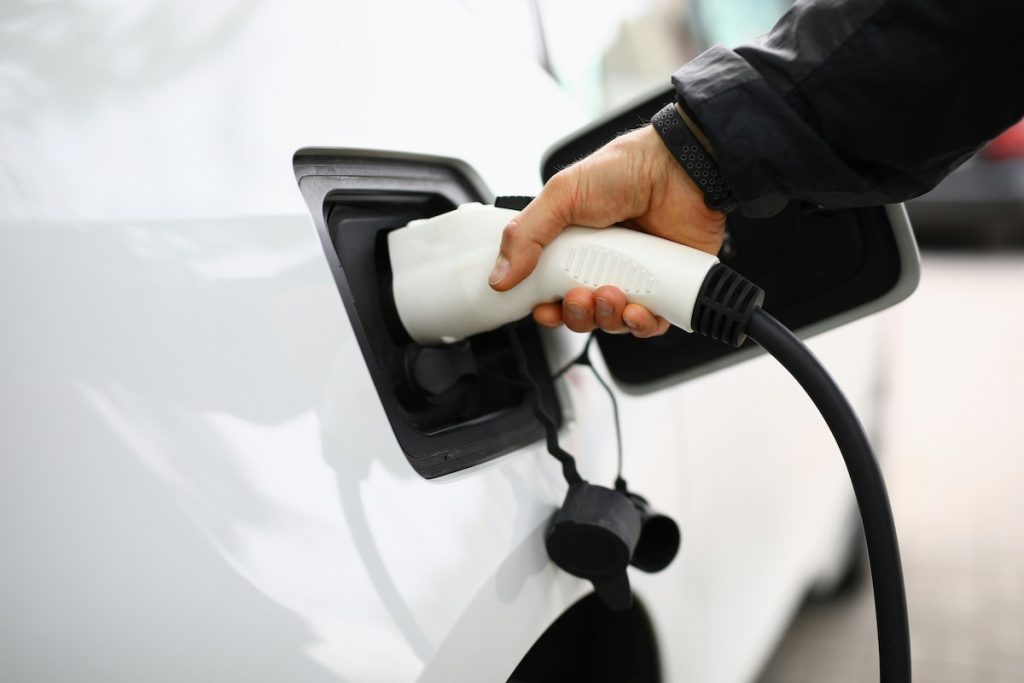
5 of the Biggest Benefits of Owning an Electric Vehicle
Here are the top reasons to invest in an EV for your home.
1. Similar to solar, they are better for the environment
Electric vehicles are cleaner and kinder to the environment because they run on gasoline or diesel. Instead, EVs are usually powered with lithium-ion batteries that are charged by electricity rather than relying on the combustion of fossil fuels. No combustion means that there are no exhaust fumes being emitted into the air.
2. They cost less money to maintain than non EVs
Electric vehicles have a reputation for being expensive and while this can be the case, they require very little maintenance during their lifetime. For example, lithium-ion battery motors don’t require oil changes or engine replacements. You can also travel further for less money because the cost per mile of an electric vehicle is less than that of gasoline-powered vehicles.
3. They are quiet
Usually the first thing drivers notice about electric vehicles is that they are essentially silent compared to cars running on gasoline. Since EVs don’t have a combustion engine and are entirely powered by electricity, they’re pretty quiet. For the most part, the only thing you might hear while driving an EV is the wheels when you turn a tight corner or any wind resistance at higher speeds.
4. They outperform gasoline-powered vehicles
Electric vehicles use half the energy of gas-powered vehicles and are all-around more efficient. While this hasn’t always been the case, most EVs outperform gasoline cars when it comes to both acceleration and torque. A big reason for this is because EVs have fewer moving parts which means that power can be transferred more efficiently.
5. You can charge them using solar panels
That’s right; you can charge your EV using the energy produced from your home solar system. All you need is an active solar panel system, an inverter, and a level 2 EV charger. To get started, you’ll want to buy one or more solar batteries so that you can easily ‘house’ the excess energy produced from your solar panels. This excess energy can be used to power your home during off-peak hours or to charge your electric vehicle.
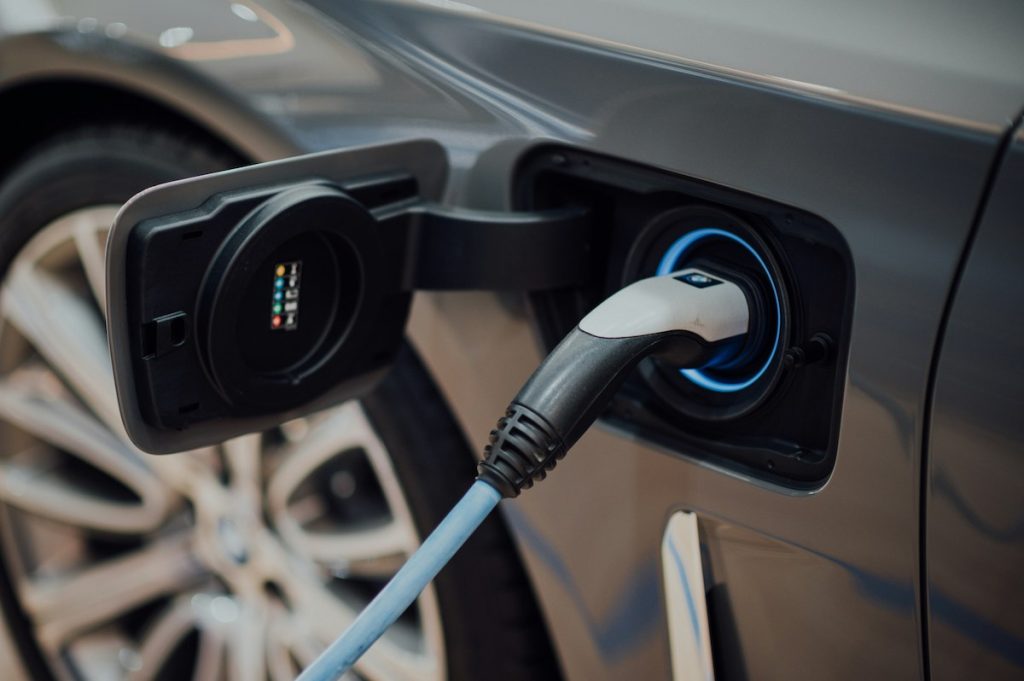
How Much Solar Power Do You Need to Charge an Electric Vehicle?
As we cover in our guide to charging an electric car with solar panels, the average EV uses 0.3 kWh per mile and the average driver travels about 1,207 miles every month. This means that the average electric vehicle uses about 362 kWh per month.
Solar Reviews recommends dividing the size of one’s solar system in kW by the output of the solar panels they’re using. Most home solar systems have a 400-watt power output, or 0.4 kW. When you divide this number by the system size (2.4 kW for example), it comes out to six solar panels.
While this is a good baseline estimate, it’s important to remember that energy needs vary by household. Adding anywhere from five to eight solar panels is a safe bet.
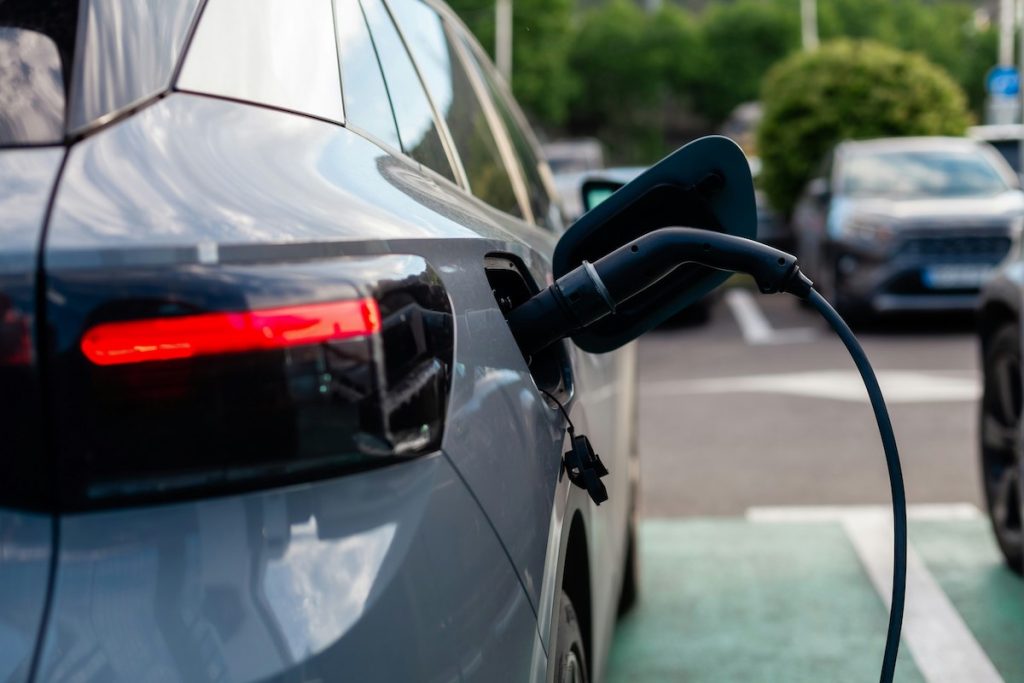
Best Solar Batteries for EV charging
When choosing a solar battery to add to your home system, consider how much it will cost, the battery’s expected lifespan, and the estimated amount of energy you wish to store. You can narrow down your options based on the battery type.
At Monalee, we use the Schneider Boost for our installations. This powerful battery stores energy produced from your solar system or your local grid, and will automatically power your home during an outage or when electricity rates are high. It is designed to be paired with the Schneider Inverter.

Final Thoughts
Going solar is a great way to save money on your monthly utility bills and at the same time, support the environment for a brighter future. Homeowners who buy a solar battery have the potential to charge their electric vehicles using the excess energy produced from their system. Electric vehicles require very little maintenance and typically outperform gasoline-powered vehicles.
